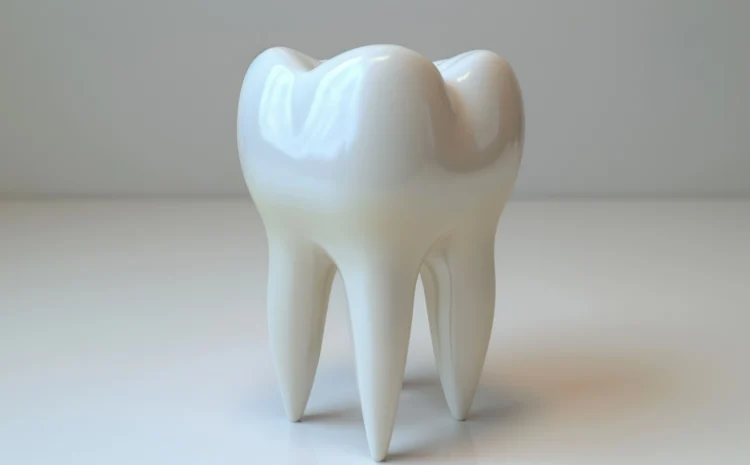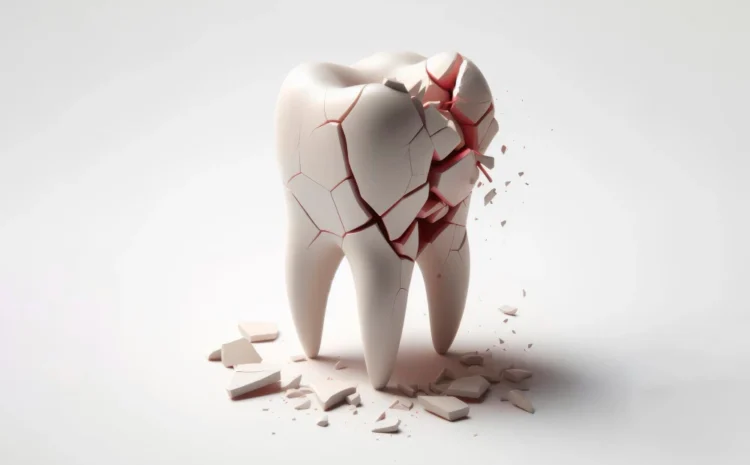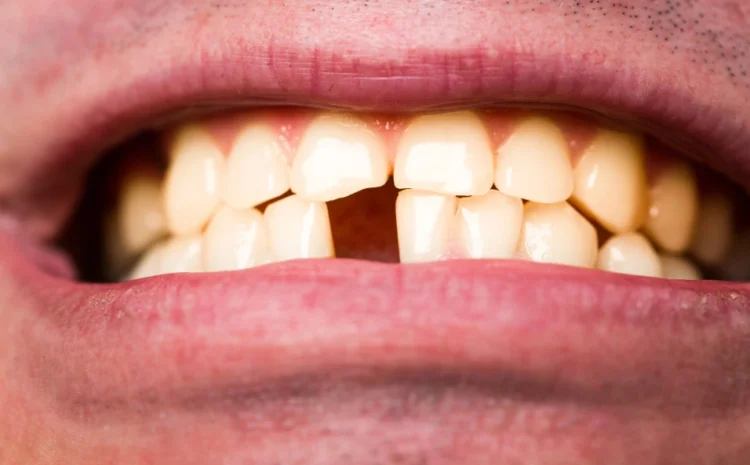
Cavity in Wisdom Tooth: Causes, Complications, and the Right Time for Removal
Wisdom teeth, or third molars, are the final set of permanent teeth to emerge in the mouth. While some people may not develop them at all, those who do often face complications. One of the most common issues associated with these teeth is the cavity in wisdom tooth—a condition that, if left untreated, can lead to pain, infection, and serious dental concerns. At Dr. Ganesh Bhandari’s clinic in Kharghar, we regularly treat patients suffering from wisdom tooth decay, infection, and impaction.
In this detailed guide, we will explore the root causes behind cavities in wisdom teeth, the challenges in maintaining their health, and when it’s best to remove them.
Why Wisdom Teeth Often Cause Problems
1. Last to Erupt and Frequently Impacted
Wisdom teeth typically erupt between the ages of 17 and 25—well after the rest of the adult teeth have come in. By this time, there is usually limited space at the back of the jaw, which leads to impaction, where the tooth is unable to fully emerge. Impacted wisdom teeth may stay trapped in the jawbone or partially erupt through the gum, leading to a host of problems.
2. Difficult Access for Cleaning and Maintenance
Because of their position at the extreme back of the mouth, wisdom teeth are extremely difficult to clean. Even patients with good oral hygiene habits struggle to reach these teeth effectively with a toothbrush or dental floss. As a result, food particles and bacteria often accumulate, creating the perfect environment for plaque buildup, tartar, and eventually—a cavity in wisdom tooth.
The Role of Gum Tissue and Risk of Infections
In lower wisdom teeth especially, it’s common for excess gum tissue to partially cover the crown of a partially erupted tooth. This flap, known as an operculum, becomes a trap for food debris and bacteria. Over time, it can cause pericoronitis, an infection characterized by red, swollen, and painful gums around the wisdom tooth.
If untreated, pericoronitis can lead to a pericoronal abscess—a pocket of pus that results in severe pain, facial swelling, and restricted mouth opening. Patients often find it hard to eat, speak, or even sleep due to this discomfort.
Cavities in Wisdom Teeth: What Makes Them Different?
A cavity in wisdom tooth can start small and remain unnoticed due to the tooth’s location. If caught early and the tooth is well-aligned, a simple composite filling can restore it. However, the success of fillings in wisdom teeth depends heavily on the tooth’s cleanliness and position.
When cavities are deep or involve the pulp, treatment becomes more complicated. While root canal treatment (RCT) is a common approach for other molars, it’s often not practical for wisdom teeth due to several factors:
- Complex and curved root structures
- Limited access for instruments
- Inability to place a crown effectively after RCT
Without a crown, the tooth is likely to fracture or decay again, leading to premature failure. For these reasons, tooth extraction is often recommended for deeply decayed wisdom teeth.
Functional Redundancy of Wisdom Teeth
Another important consideration is the functional relevance of wisdom teeth. Most wisdom teeth are misaligned or tilted, which means they do not contribute effectively to chewing. The molars in front of them (first and second molars) are more than capable of handling biting and grinding functions.
Hence, removal of wisdom teeth has no negative impact on biting efficiency. In fact, extracting problematic wisdom teeth can help preserve the health of neighboring teeth and improve overall oral hygiene.
Upper Wisdom Teeth: A Different Set of Issues
Upper wisdom teeth can pose their own challenges. In many patients, these teeth tilt outward toward the inner cheek, causing irritation, ulcers, and cheek biting. Over time, the persistent trauma can lead to restricted mouth opening due to muscle spasms in the jaw.
This condition, known as trismus, makes basic functions like chewing and speaking extremely uncomfortable. In such cases, wisdom tooth extraction is the only effective solution to eliminate pain and restore normal jaw function
When Should You Consider Removing a Wisdom Tooth?
Here are clear indicators that wisdom tooth extraction may be the best course of action:
- The tooth is impacted and causing pain or pressure
- There is repeated gum infection around the tooth (pericoronitis)
- A large cavity is present, and RCT is not practical
- The tooth is damaging adjacent teeth or crowding the jaw
- It is tilted toward the cheek and causing ulcers or trismus
Wisdom Tooth Extraction: What to Expect
At Dr. Ganesh Bhandari’s clinic in Kharghar, we provide safe and comfortable extractions using local anesthesia and modern surgical tools. Depending on the tooth’s position and complexity, the extraction may be simple or surgical.
Post-operative care includes:
- Pain management with prescribed medications
- Cold compresses to reduce swelling
- Soft diet for a few days
- Strict oral hygiene to avoid dry socket
Most patients recover within 3–7 days and report significant relief after the extraction.
Preventive Steps for Wisdom Tooth Health
If your wisdom teeth are fully erupted and in proper alignment, they can sometimes be maintained with meticulous care:
- Use a soft-bristle toothbrush with a small head to reach back teeth
- Floss daily, especially around the wisdom teeth
- Use antibacterial mouthwash
- Visit your dentist regularly for professional cleanings and checkups
Despite these efforts, many wisdom teeth eventually develop problems due to their challenging location. If your dentist recommends removal, it’s often in the interest of long-term oral health.
Why Trust Dr. Ganesh Bhandari – Best Dentist in Kharghar
Dr. Ganesh Bhandari is a leading dental expert in Navi Mumbai, known for his precision, experience, and compassionate care. At his clinic, each patient undergoes a thorough evaluation, including X-rays and clinical assessment, to determine the best treatment approach.
Our clinic offers:
- Pain-free extractions with local anesthesia
- Advanced imaging for diagnosis
- Customized treatment plans
- Emphasis on patient education and comfort
Whether you’re dealing with a cavity in your wisdom tooth or chronic jaw discomfort, Dr. Bhandari ensures that you receive the highest standard of dental care.
Conclusion
A cavity in wisdom tooth is a common dental issue that can lead to pain, infection, and other complications if left untreated. These teeth are the last to erupt, often impacted, and difficult to clean—making them vulnerable to decay. While small cavities can sometimes be treated with fillings, larger ones usually require extraction. Due to their odd placement, wisdom teeth do not contribute meaningfully to chewing, and their removal has no adverse effect on oral function.
If you’re experiencing discomfort or suspect a cavity in your wisdom tooth, don’t delay. Consult Dr. Ganesh Bhandari, the most trusted dentist in Kharghar, for a thorough diagnosis and personalized treatment.



